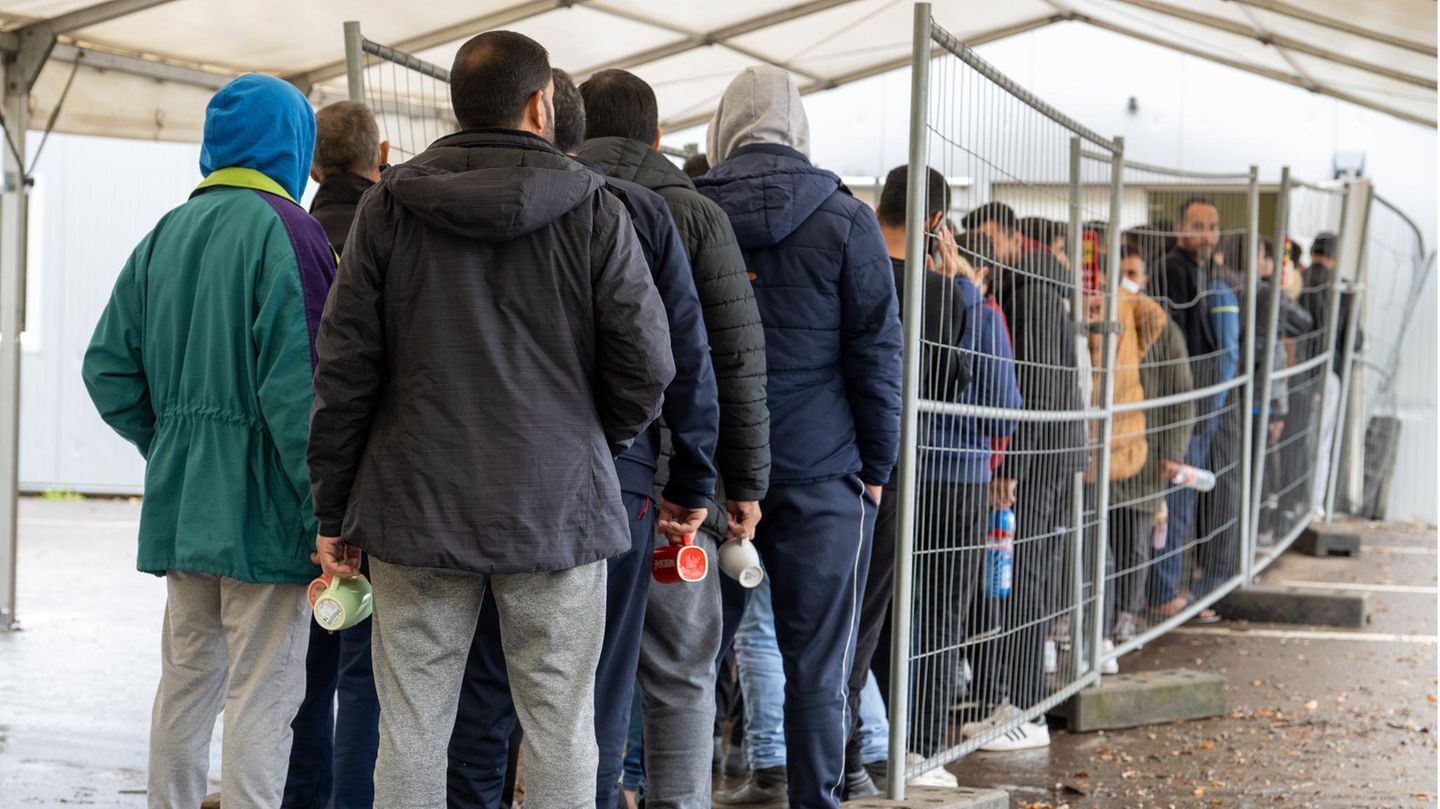Since the refugee crisis of 2015/2016, the EU countries have been working on a far-reaching reform of the EU asylum system. After much argument, there is now a breakthrough in the negotiations. But not all stumbling blocks are out of the way yet.
The asylum procedures in the EU are to be significantly tightened in view of the problems with illegal migration. At a meeting of interior ministers in Luxembourg on Thursday, a sufficiently large majority of member states voted in favor of comprehensive reform plans, as announced by the Swedish Presidency. In particular, they provide for a much more rigid approach to dealing with migrants with no prospects of staying.
In the future, people arriving from countries that are considered safe should come to strictly controlled reception facilities under conditions similar to detention after crossing the border. There, it would normally be checked within twelve weeks whether the applicant has a chance of asylum. If not, it should be sent back immediately.
Germany calls for exceptions for families
In the negotiations, the federal government had emphatically advocated that families with children be exempted from the so-called border procedures. In order to make the breakthrough possible, however, she ultimately had to accept that this could be possible. However, Federal Minister of the Interior Nancy Faeser said at the meeting that the Federal Government will continue to work to ensure that all children’s rights are guaranteed.
Escape worldwide
103 million refugees worldwide – these countries take in the most
Federal Foreign Minister Annalena Baerbock defended the solution found. “The compromise is by no means easy. To be honest, if we as the federal government could have decided on the reform on our own, then it would look different,” wrote the Green politician on Thursday in a statement made during her visit to the Colombian City of Cali was released.
Internal criticism from the Greens
“But honesty also means that anyone who thinks this compromise is unacceptable accepts that no one will be distributed in the future,” said Baerbock. The plans for the new regulations met with sharp internal criticism from the Greens.
A failure of the reform would have meant “that families and children from Syria or Afghanistan who fled war, torture and the most serious human rights violations would be stuck at the external border forever and without any prospects,” wrote Baerbock. “A no or an abstention by Germany on the reform would have meant more suffering, not less.” The bitter part of the compromise is the border procedures at the external border for people from countries with a low recognition rate. “But without these border procedures, nobody but Germany would have participated in the distribution mechanism.”
It is also conceivable that the EU Parliament will push through changes. It has a say in the reform and will negotiate the project with representatives of the EU states in the coming months.
Stricter asylum rules and more solidarity
In addition to the tightened asylum procedures, the plans decided on Thursday also provide for more solidarity with the heavily burdened member states at the EU’s external borders. In the future, it should no longer be voluntary, but mandatory. Countries that do not want to take in refugees would be forced to pay compensation. Countries like Hungary therefore voted against the plan.
Countries like Italy, for example, could benefit from the obligation to show solidarity. According to the UN refugee agency, more than 50,000 migrants who crossed the Mediterranean have been registered in Italy this year. Most of them came from Tunisia, Egypt and Bangladesh and therefore had almost no prospects of being able to stay legally.
EU Parliament is still negotiating
The outstanding negotiations with the EU Parliament should ideally be concluded before the end of the year. Then the laws could be passed before the European elections in June 2024. If this does not succeed, the changed political balance of power could make renegotiations necessary.
Source: Stern
I have been working in the news industry for over 6 years, first as a reporter and now as an editor. I have covered politics extensively, and my work has appeared in major newspapers and online news outlets around the world. In addition to my writing, I also contribute regularly to 24 Hours World.




